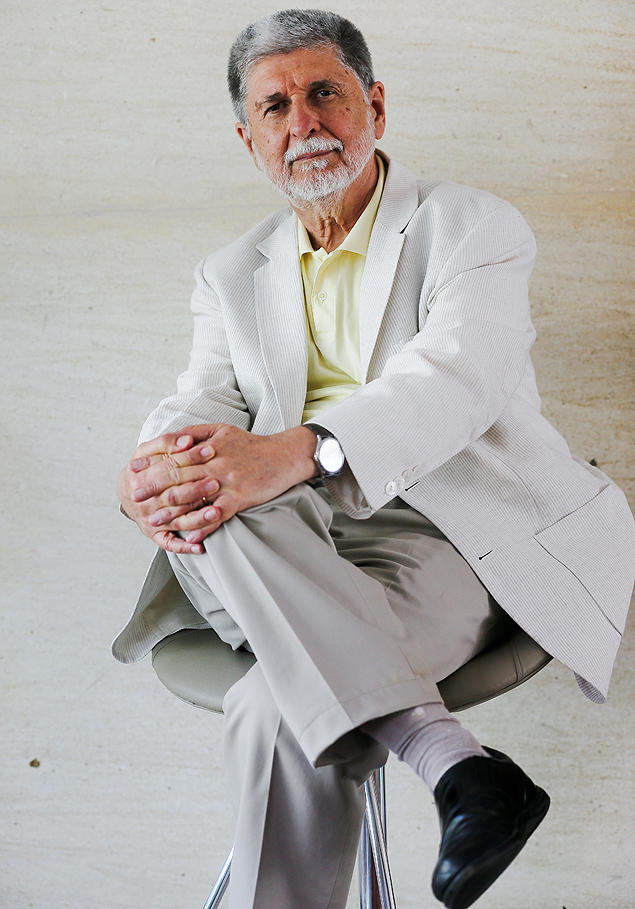Latest Photo Galleries
Brazilian Markets
17h34 Bovespa |
-0,32% | 124.741 |
16h43 Gold |
0,00% | 117 |
17h00 Dollar |
+0,38% | 5,1487 |
16h30 Euro |
+0,49% | 2,65250 |
ADVERTISING
Closing Brazilian Embassies Would Be Impractical Setback, Says Ex Minister of Foreign Affairs Amorim
02/23/2015 - 09h23
Advertising
PATRÍCIA CAMPOS MELLO
FROM SÃO PAULO
Closing Brazilian embassies and consulates abroad would be an "impractical setback," despite the tightening budget that has left some posts with no money, not even to pay the electric bill.
This is the opinion of former Minister of Foreign Affairs Celso Amorim, who, with former President Lula, significantly increased the number of diplomats at the Foreign Ministry, Itamaraty, and at foreign posts.
For him, it's "strange" that Brazil has failed to participate in international politics. Amorim will launch in March his book "Tehran, Ramallah and Doha: Memories of Active and Haughty Foreign Policy," in which he talks about backroom negotiations.
See excerpts from the interview below:
Folha - Regarding the lack of resources for the Foreign Ministry, you said there is a debate now about the necessity to close some posts abroad, since there is no budget
Amorim - I do not believe this will occur. This would be an impractical setback for a country like Brazil. There are countries in decline that were once major powers and that are not anymore. They may even think that way. Brazil cannot think that way. It is such a small feature (of Itamaraty) that this will hold no weight in the scheme of things. Overseas posts are essential; they have a multiplier effect. The volume of business that Brazil does with Arab countries and in Africa has grown. The choice of Brazil as host of the Olympics, the election of Roberto Azevêdo in the WTO, José Graziano in the FAO. No other country has had the FAO and the WTO at the same time if it doesn't also have good diplomacy. A little money is involved. But within the Union Budget it's minimal.
Folha - Brazil, along with Turkey, negotiated a nuclear fuel trade deal with Iran in 2010. But the agreement was not accepted by countries like the United States and France, which ended up imposing sanctions against Iran. Did the fact that Brazil tailored this agreement change the stature of the country in the international arena?
Amorim - At the time, several analysts said that, regardless of whether the agreement was followed or not, Brazil has shown its capacity of action in international mediation. The fact that we are discussing today an interim agreement indicates this. We showed that it was possible. They may now reach another agreement; I don't know if it will be better. The stock of Iran's uranium today is much greater than it was then. At the time, it was enough to make a bomb. Nowadays, you could make four or five. The deal did not go ahead because we do not control the internal politics of certain countries
Folha - Did then-President Lula feel betrayed by US leader Barack Obama because the US encouraged the mediation of Brazil and, at the last minute, pulled out?
Amorim - These words are very personal, and I'm only speaking for myself. It was not out of our calculations that this could happen, but we didn't think it would happen until an agreement with the exact terms we had solicited was reached. We did not do this at any time to be good to Iran. We have interests in having relations with Iran, as everyone does. With the current interim agreement, France and Germany have already returned to selling to Iran. And we are a bit behind. There are almost 80 million people; it's a major oil producer; of course we're interested. And if Brazil is to play a role in the Middle East, as I think it should, there's no way to ignore Iran.
Folha - You say in your book that Obama himself said the delay in adopting sanctions against the Iranians could lead to an Israeli attack on Iran
Amorim - Yes, I was astonished and commented to President Lula: it is the protector afraid of the protectee. It is the recognition of the inability to persuade an ultra-close ally that depends on you for so much.
Translated by JILL LANGLOIS
Read the article in the original language
| Alan Marques - 16.fev.2015/Folhapress | ||
 |
||
| "Closing Brazilian embassies and consulates abroad would be an impractical setback", Celso Amorim said |



